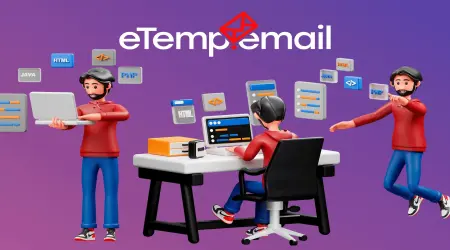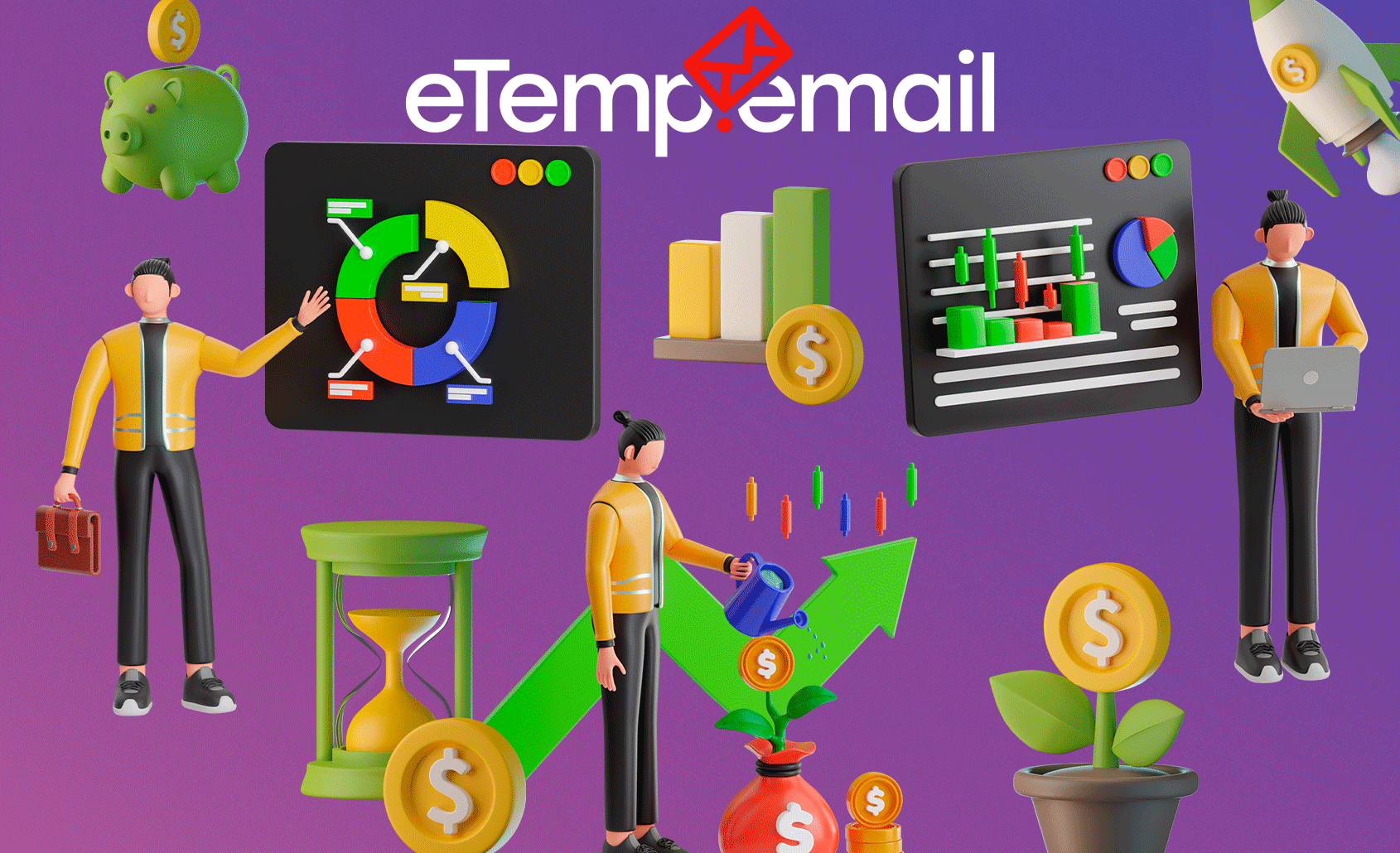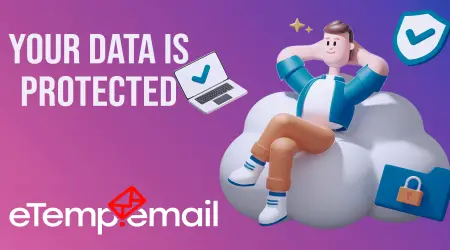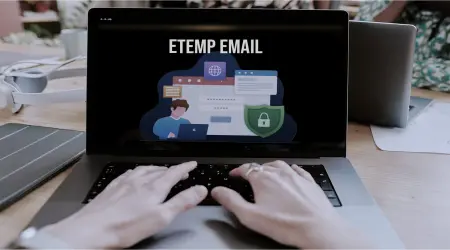

The Rise of DeFi Security: Protecting Your Investments in Decentralized Finance
In 2025, Decentralized Finance (DeFi) has firmly established itself as a revolutionary force, reshaping the global financial landscape by offering services like lending, borrowing, and trading without traditional intermediaries. This innovative ecosystem, built on blockchain technology and smart contracts, promises unprecedented accessibility and efficiency. However, with great innovation comes unique security challenges.
The very decentralization that defines DeFi also creates new vulnerabilities. From complex smart contract exploits to sophisticated phishing attempts, safeguarding your digital investments in this rapidly evolving space is paramount. This article will explore the most pressing security concerns within the DeFi ecosystem and provide actionable strategies to protect your assets. We'll also demonstrate how eTemp.email serves as an essential tool in maintaining your privacy and security when interacting with the diverse world of decentralized applications.
Understanding the DeFi Security Landscape in 2025
While DeFi aims to remove centralized points of failure, it introduces new vectors for risk that users must be aware of:
- Smart Contract Vulnerabilities: DeFi protocols are built on smart contracts—self-executing agreements whose terms are directly written into code. If this code contains bugs, logical flaws, or unhandled edge cases, it can be exploited by attackers. These exploits can lead to the loss of vast sums of deposited funds, as the code is immutable once deployed. Regularly audited contracts are safer, but no audit guarantees absolute perfection.
- Oracle Attacks: Many DeFi applications rely on "oracles" to feed them real-world data (like asset prices) from outside the blockchain. If an oracle feed is compromised or manipulated, it can trick a smart contract into executing based on false information, leading to significant financial losses.
- Liquidity Pool Exploits (Flash Loans, Impermanent Loss): Liquidity pools are fundamental to DeFi, enabling decentralized trading. However, they can be vulnerable to exploits, especially flash loan attacks, where attackers take out large uncollateralized loans, manipulate asset prices on other exchanges, and profit from the discrepancy, repaying the loan within a single transaction. While "impermanent loss" isn't a hack, it's a significant risk for liquidity providers when asset prices diverge.
- Phishing and Social Engineering: Just like in traditional crypto, phishing remains a major threat. Scammers create fake DeFi platform interfaces, deceptive token swap sites, or malicious wallet connection requests to trick users into approving harmful transactions or revealing their wallet seed phrases. Social engineering tactics are used to build trust before leading victims to malicious links.
- Front-Running: This occurs when malicious actors observe pending transactions on the blockchain and place their own transaction ahead of yours to profit from price changes induced by your large order. While often seen in traditional finance, it takes on new forms in DeFi due to blockchain transparency.
- Rug Pulls and Malicious Token Contracts: In the decentralized exchange (DEX) space, developers can create tokens with hidden malicious functions (e.g., preventing users from selling, or allowing developers to mint infinite tokens). A "rug pull" happens when developers drain liquidity from a project, leaving investors with worthless tokens.
Essential Strategies for Protecting Your DeFi Investments
Navigating DeFi securely requires a proactive and informed approach. Here are key protective measures:
- Do Your Own Research (DYOR): Before interacting with any DeFi protocol, thoroughly research the project. Check for independent security audits of their smart contracts, review their team's reputation, and understand the protocol's mechanics and associated risks.
- Start Small: When exploring new or less-established protocols, start with small amounts of capital that you are comfortable losing. This allows you to test the waters without putting significant assets at risk.
- Use Hardware Wallets: For interacting with DeFi, especially for holding funds, a hardware wallet provides the highest level of security. Your private keys remain offline, making it virtually impossible for malicious smart contracts or phishing sites to steal your funds without your explicit physical confirmation.
- Understand Smart Contract Approvals: Be extremely cautious about the permissions you grant to smart contracts. When a dApp asks to "approve" spending a certain token, always verify what you're approving. It's often safer to approve specific amounts rather than unlimited spending.
- Revoke Unused Permissions: Regularly review and revoke smart contract permissions that you no longer need. Many tools allow you to see which dApps have access to your tokens and revoke that access.
- Bookmark Legitimate URLs: Always access DeFi platforms by using bookmarked, verified URLs. Never click on links from unsolicited emails, social media posts, or chat messages. Phishing sites are designed to look identical to legitimate ones.
- Stay Updated: The DeFi space moves quickly. Follow reputable security researchers, audit firms, and project announcements to stay informed about new vulnerabilities or exploits.
The Role of eTemp.email in Enhancing Your DeFi Security and Privacy
While direct wallet security is paramount in DeFi, eTemp.email adds crucial layers of privacy and protection, especially during initial interactions and explorations within the ecosystem:
- Shielding Against Phishing and Spam: When you sign up for newsletters, community forums, or test out new DeFi dApps that require an email address, using a
temporary email - Safe Exploration of New Protocols: The DeFi space is ripe with innovative but sometimes unproven protocols. A disposable email allows you to register and receive updates without linking your long-term digital identity to speculative or potentially risky ventures. If a project proves unstable or malicious, you can simply discard the temporary address without consequence to your main online presence.
- Mitigating Data Exposure: While many DeFi interactions are direct wallet-to-contract, some services or community platforms might collect personal data via email sign-ups. If these platforms suffer a data breach, only your temporary email is exposed, safeguarding your primary email from becoming part of leaked databases. For more on this, see
How to Protect Personal Data Online: 5 Simple Steps with eTemp.email - Maintaining Pseudonymity for Community Engagement: For engaging with DeFi communities on forums or platforms that require email registration but before linking a wallet, a temporary email helps maintain a level of pseudonymity, protecting your personal details from public association with your DeFi activities.
Conclusion
Decentralized Finance in 2025 offers a compelling vision of a more open and accessible financial system. However, its rapid evolution necessitates a vigilant approach to security. While the core of DeFi security lies in smart contract integrity and robust wallet management, your digital privacy and first line of defense against social engineering scams are equally vital.
By combining thorough research, secure wallet practices, and the strategic use of eTemp.email for all non-critical DeFi-related sign-ups and communications, you can significantly fortify your investments and navigate the decentralized future with greater confidence. Secure your interactions; try




